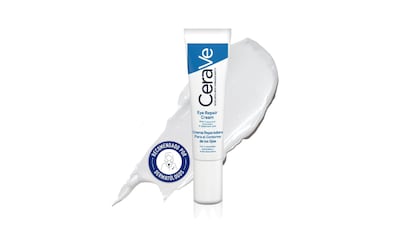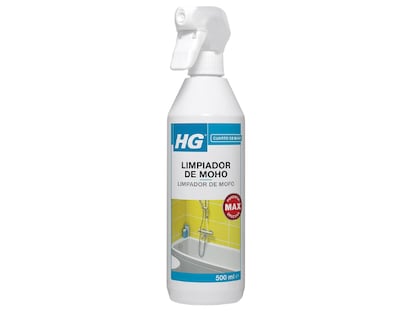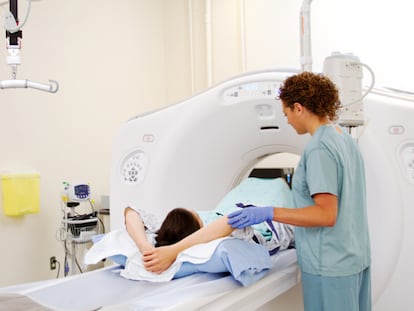Cable sobre las elecciones en Rabat
En 2009, la Embajada en Rabat informa sobre el desarrollo de elecciones municipales "relativamente transparentes" y de la intervenci¨®n en las mismas del palacio real
| ID: | 216679 |
| Date: | 2009-07-15 10:38:00 |
| Origin: | 09RABAT607 |
| Source: | Embassy Rabat |
| Classification: | SECRET |
| Dunno: | 09RABAT517 |
| Destination: | VZCZCXYZ0001 PP RUEHWEB DE RUEHRB #0607/01 1961038 ZNY SSSSS ZZH P 151038Z JUL 09 FM AMEMBASSY RABAT TO RUEHC/SECSTATE WASHDC PRIORITY 0419 INFO RUCNMGH/MAGHREB COLLECTIVE |
S E C R E T RABAT 000607 SIPDIS STATE FOR NEA/MAG AND DRL/NESCA E.O. 12958: DECL: 07/15/2019 TAGS: PHUM, PGOV, PINS, KDEM, MO SUBJECT: MOROCCO'S MANAGED MAYORAL ELECTIONS MAY STRENGTHEN PJD REF: RABAT 0517 Classified By: Charge d'Affaires, a.i., Robert P. Jackson for reasons 1 .4 (b) and (d). ------- Summary ------- 1. (C) Despite the relative transparency of the recent election of town (or communal) council members across Morocco on June 12, the subsequent election by council members of city and communal council leaders (mayors), may represent a step backward for Moroccan democracy. The high-stakes indirect balloting for mayors has traditionally been a forum for vote buying and pressure. This year, not content with its already impressive and fair electoral performance, the Party of Authenticity and Modernity (PAM) of Fouad Ali El Himma reportedly used extra-political pressure tactics, including invoking the name of King Mohammed VI, to pressure other parties into entering pro-PAM mayoral coalitions and withdrawing from alliances with the Islamist-oriented Party of Justice and Development (PJD). This resulted was non-PJD led coalitions in Casablanca, Tangier (PAM-led), and Sale. Most troubling, the Palace appears to have intervened in several places to keep the PJD from controlling Morocco's major cities, while allowing them to run second-tier cites, such as Kenitra and Tetouan. Palace interference was most blatant in the city of Oujda. There, the Ministry of Interior-appointed local governor blocked a vote that would have produced a PJD-led coalition on June 25, allowing the centrist parties time to pressure coalition allies. National police and intelligence officials reportedly intimidated PJD coalition supporters and beat a local PJD leader into a coma. A former Minister, a French government contact and other sources confirmed Palace complicity in the pro-PAM/anti-PJD effort. The PAM has sullied its reputation as a reformist party and bolstered criticism that it is an instrument of the Palace. The picture as usual is mixed, and palace intervention appears more anti-PJD than pro-PAM. In Laayoune in the Western Sahara, the PAM suffered a crushing defeat at the hands of Istiqlal's Ould er Rachid machine. In total, these machinations may further erode public support for Morocco,s fledgling democratic processes and increase sympathy for the PJD. End Summary. --------------------- PAM: The Palace Party --------------------- 2. (SBU) For over two weeks, Morocco has witnessed widespread media coverage of political party irregularities, corruption and government interference in the recent city leadership election races. In contrast with the public June 12 elections for communal councils, which saw Moroccans electing town council members in a relatively transparent manner (Ref A), the roughly week-long process for selecting mayors (in large cities) and communal council presidents (in small cities and rural areas) has been characterized by multiple reports of irregularities. Because mayors are selected indirectly from the pool of recently elected communal council members, which come from a myriad of over 30 political parties (six of which dominate Moroccan politics), the process comes down to intense negotiations (with various incentives and disincentives) to establish majority coalitions in each city. The ranking member of the leading party in these coalitions typically becomes the mayor or chief executive. See Paragraph 9 for new mayoral selection results. 3. (C) Several days into this negotiation process, leaders of the self-described Koran-referent PJD began to complain that the PAM had been using extra normal pressure tactics, i.e., outside of the normal petty bribery often associated with the process, to enlist other parties and their members to support PAM-led coalitions and desert PJD-led coalitions in key cities. D/PolCouns attended a political debate on June 29 among party leaders at which PJD leader Benkirane roundly criticized the PAM for using the extra-normal pressure tactic of invoking King Mohammed VI's name to underscore His Majesty's alleged preference for other parties to join PAM-led coalitions and to thwart PJD-led coalitions in cities like Casablanca, Tangier, and Oujda. Because PAM party founder, Fouad Ali El Himma is widely known as "a friend of the King" and the PAM's success has largely hinged on the perception that he "has the monarch,s ear," Benkirane's accusations received thunderous applause from the crowd, even as the local PAM representative deflected the accusations as "sour grapes." 4. XXXXXXXXXXXXX, confirmed Benkirane's accusations. In addition, XXXXXXXXXXXXX said that the PAM also employed malicious and untruthful smear campaigns against individual PJD members, calling some drug dealers, terrorists, and criminals and getting guidance from the security services. This focused on Morocco's largest cities, as the PJD did win elsewhere. "If you look at all of the cities where PJD was permitted to win mayoral slots, e.g., Tetouan, Chefchaouen, Kenitra and Larache, they all have several points in common: they are relatively small, poor, and lacking central government investment," XXXXXXXXXXXXX. 5. (C) A French Embassy source (strictly protect) confided to D/PolCouns July 9 that his contacts in the Moroccan leadership report that King Mohammed VI had indeed ordered that the PJD not be allowed to assume mayoral positions in several Moroccan cities like Tangier and Oujda. PAM's taking the top job in Tangier seems particularly suspicious. With the PJD tying the Rally of National Independents Party (RNI) for the plurality of votes there, the two parties initially formed a coalition with RNI taking the mayor,s slot in exchange for a PJD taking the Vice mayor,s position. However, the coalition dissolved just before it was to be finalized with RNI representatives claiming enigmatically to reporters that "they came under extraordinary pressure" to withdraw from the coalition, without further elaboration. This coalition was replaced with a PAM-led coalition, despite the fact that PAM finished fourth in Tangier. --------------------------------------------- ------- Oujda Mayor,s Race Marred by Government Intervention --------------------------------------------- ------- 6. (C) MOI complicity in supporting PAM, or at least blocking the PJD from securing the mayor,s position in major Moroccan cities, however, appeared most blatant in the city of Oujda where PJD won a plurality of council seats. In the council chambers, MOI officials prevented a PJD-led coalition with members of the Popular Movement Party (MP) and other parties on June 25, declaring an insufficient quorum. In the ensuing days, 13 local council members allied with the PJD, including all six communal council members from the MP, reported harassment from the Renseignements Generaux (RG), i.e., an internal intelligence branch of the National Police, to withdraw their support from a PJD-led coalition. On July 27, one of the MP communal councilors supporting the PJD-led coalition, Fadwa Manouni, posted on YouTube a scathing commentary on the security force,s intimidation tactics, which included lengthy questioning by local police and attempted blackmail by the RG of the 13 communal council members supporting the PJD-led coalition. MP councilors said that party chief Mohand Laenser originally approved the coalition; then only after the PJD mayoralty was blocked, changed his position. Subsequently, Manouni and the five other MP communal council members that had continued to support the PJD were expelled from the MP on July 9. She then reportedly dropped out of sight. On July 11, Manoumi recanted her YouTube speech in another web posting, but has not appeared in public. 7. (SBU) PJD, MP, and other elected council members protested the government's intervention on July 3. Police were called in to break up the protests, according to the press. During an ensuing melee, PJD leader Noureddine Benbakr, who would have been Mayor if the PJD-led coalition had been permitted to stand, suffered a cerebral hemorrhage and fell into a coma as a result of a blow to his head by security personnel. Other elected council members suffered less serious injuries, were detained, and later released. Later that day, a PAM-supported Party Istiqlal (PI)-led coalition secured the mayoral post for the brother of Transport Minister Hejira. PJD parliamentary leader Mustapha Ramid, who had come to support local PJD members in Oujda, was blocked from entering the Oujda municipal center, according to the press reports. 8. (C) A Parliamentary staffer and former MP member confirmed to D/PolCouns on July 13, that the six MP council members in Oujda had come under "intense pressure" from local security authorities and PAM members, through threats and intimidation, to withdraw their support from coalition with the PJD. He said these threats bore the moniker of the Palace, adding, "they (the MP members) were put in a terrible position." He also confirmed that he had heard from his political contacts that the Palace was taking all necessary measures to prevent the PJD from securing the leadership of any of Morocco,s major cities. He went on to say that he knew of communal council members that came under the same combination of pressure tactics from PAM and government security authorities in the cities of Sale and even Rabat. The media reported that a move to select PJD parliamentary leader Lahcen Daoudi as Mayor of Rabat subsequently collapsed under rumors of government pressure, but the PJD stayed in the coalition to support socialist USFP member and former Finance Minister Oulalalu. 9. (U) Mayors and Their Coalitions follow: City Mayor Party Coalition ---- ----- ----- --------- Meknes Ahmed Hilal PAM RNI, UC Marrakesh TBD PAM PI, RNI, MP, UC Tangier Samir Abdelmoula PAM RNI, MP Fes Abdelhamid Chabat PI RNI, FFD Oujda Omar Hejira PI PAM, MP Laayoune Hamdi Ould er Rachid PI PI majority Chefchaouen Mohamed Soufiani PJD USFP Tetouan Mohamed Ida Ammar PJD USFP Sale Noureddine Lazrak RNI PI, FFD Agadir Tarik Kabbage USFP PJD, PT Rabat Fathallah Oualalou USFP PJD, PI, RNI, and PPS Key: Constitutional Union UC Democratic Forces Front FFD Istiqlal Party PI Party of Authenticity and Modernity PAM Party of Justice and Development PJD Popular Movement Party MP Progressive Socialist Party PPS Rally of National Independents RNI Union of Socialist Forces Party USFP Workers Party PT ------------------------------------ Normal Irregularities Are Bad Enough ------------------------------------ 10. (C) Even without the extraordinary events described above, the process of selecting city leaders has always been one of the most opaque and corrupt aspects of Morocco's communal elections process. XXXXXXXXXXXXX, the mayoral selection process is heavily influenced through the giving and taking of bribes. She said that while this election was no exception to the rule, increased government scrutiny over government-provided campaign funds had given increased incentive to parties to recruit wealthy individuals into parties to contribute to parties' "slush funds." Tronnes pointed to political "kidnapping," of council members to resort hotels (with their families) for the duration of the selection negotiations, rewards the councilors and denies competitors the opportunity to make counter offers so that, "once a candidate is bought, they stay bought." 11. (C) Former Minister of Human Rights Mohamed Aujjar told Charge that the GOM,s heavy-handed tactics may have backfired and increased support for the PJD. The former Minister also noted that the RNI split with the PAM has certainly deepened. He felt the only positive development from this exercise was the possible entry of the MP and the UC into the Istiqlal-led coalition. Aujjar believed that a looming cabinet reshuffle will be limited in scope, with the PAM remaining in opposition but voting with the Government on most issues. 12. (U) On July 13 and 14, the Ministry of Interior and the PAM, respectively,separately refuted any inappropriate and anti-democratic tactics. ------- Comment ------- 13. (C) As usual in Moroccan politics, this is a mixed bag with an unclear bottom line that points to both ongoing evolution and continued monarchical autocracy. Despite the relative transparency and success of the local communal elections on June 12 (Ref A), the subsequent elections of mayors appears to represent at least a partial step backward for Moroccan democracy. For the PAM, despite having secured a plurality of council seats nationwide, elected hundreds of young reformers new to politics, and won leadership of some major cities, it has tarnished its effort to paint itself as a standard bearer of democratization. The combination of the PAM,s extra-normal pressure tactics and its joint efforts with security officials to block PJD city leadership has largely confirmed previous criticism that it is an instrument of the Palace. But it too suffered several setbacks, as in Western Sahara. While probably still destined for victory in 2012, it will be subject to greater scrutiny. 14. (C) PAM success has been blunted a bit by a large number of legal challenges, at least two of which it has already lost, including its new star, the young women mayor it had gotten elected in Marrakesh, who has been ordered to face a rerun of the election in her district (septel). PAM officials indicate they will be fighting these challenges in court and appealing decisions that have gone against them. 15. (S) One uncertainty in this is the role of the King. He was in the north through much of the unfortunate events in Oujda. Unconfirmed accounts have indicated that it was at his personal order that the PJD was kept out of the large cities. One source claimed that the King was pouring a lot of the government's money into the previously neglected north and particularly into the Oujda region, on Algeria's border, in order to prepare regional infrastructure for a potential reopening. The source said the King did not want the PJD to be able to claim credit for this largesse and the development it would promote. 16. (C) For the PJD, it may have been kept out of running major cities, both by normal hardball politics and, at least in Oujda by apparently blatant intervention by security and domestic intelligence services, denying it the chance showcase any example of good governance in a high profile city prior to the 2012 general election. Still, the modern Islamists of the PJD now run more cites than ever before and their number of local councilors remains 50 percent above what it scored last time around. In sum, this is enough of a blow to frustrate them, but probably not enough to drive them from the game. The outcome may well erode further public support for Morocco's democratic processes and future voter participation. However, while the political season of cascading regional and upper house elections will continue run until October, and the legal fights will continue, on the local level, the public will turn to see how the new mayors and councils govern. End Comment. ***************************************** Visit Embassy Rabat's Classified Website; http://www.intelink.sgov.gov/wiki/Portal:Moro cco ***************************************** Jackson |
Traducci¨®n autom¨¢tica. Puede que el texto traducido no sea fiel al original
Tu suscripci¨®n se est¨¢ usando en otro dispositivo
?Quieres a?adir otro usuario a tu suscripci¨®n?
Si contin¨²as leyendo en este dispositivo, no se podr¨¢ leer en el otro.
FlechaTu suscripci¨®n se est¨¢ usando en otro dispositivo y solo puedes acceder a EL PA?S desde un dispositivo a la vez.
Si quieres compartir tu cuenta, cambia tu suscripci¨®n a la modalidad Premium, as¨ª podr¨¢s a?adir otro usuario. Cada uno acceder¨¢ con su propia cuenta de email, lo que os permitir¨¢ personalizar vuestra experiencia en EL PA?S.
En el caso de no saber qui¨¦n est¨¢ usando tu cuenta, te recomendamos cambiar tu contrase?a aqu¨ª.
Si decides continuar compartiendo tu cuenta, este mensaje se mostrar¨¢ en tu dispositivo y en el de la otra persona que est¨¢ usando tu cuenta de forma indefinida, afectando a tu experiencia de lectura. Puedes consultar aqu¨ª los t¨¦rminos y condiciones de la suscripci¨®n digital.
































































